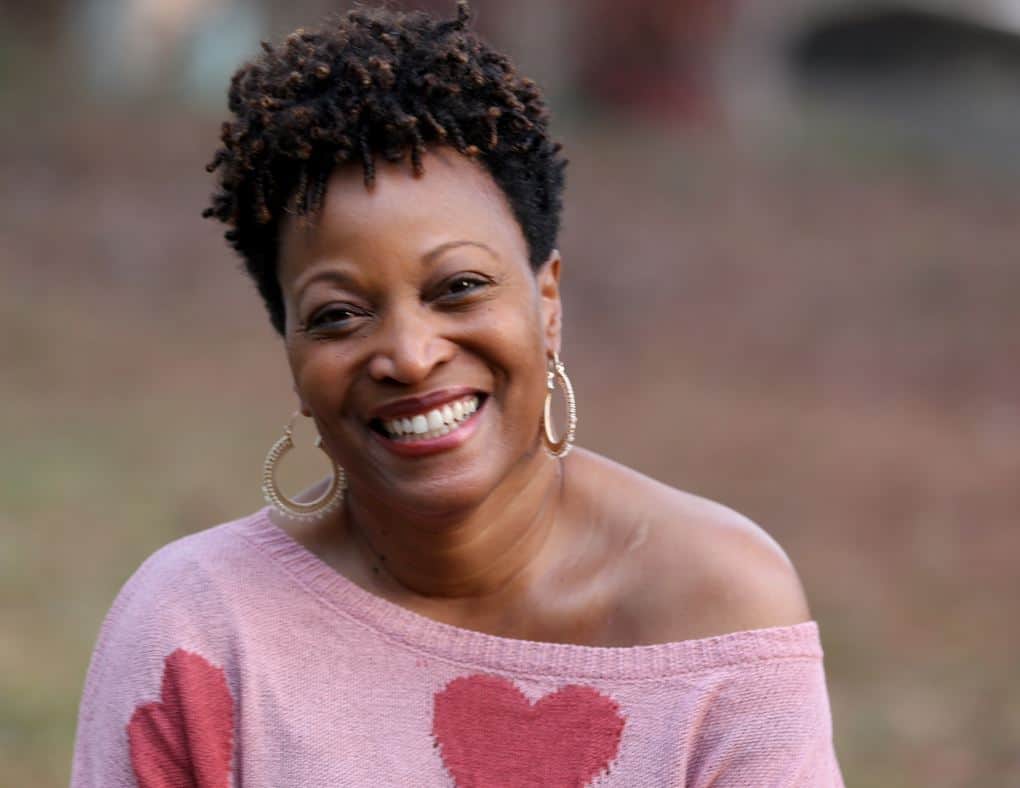
Kellie Goss has a family history of breast cancer. With the encouragement of her doctor, she received genetic counseling and testing. This is her story in her own words.
There’s this feeling that you get in the pit of your stomach when your mom, sister or auntie gets breast cancer, and you wonder, am I next? You get a nudging that prompts you to want to do something – anything – to prepare for what seems like the inevitable; but you do nothing. Instead, you wait. You wait for cancer to find you and pray that when the time comes, you will end up victorious. You pray that you “live to fight another day,” and it’s only a short detour on life’s journey. Your “test will be your testimony” and “your mess will be your message.” You comfort yourself in the knowledge that it may come, but you will be fine. You have a million other things to focus on now instead.
This was my life. It was filled with worrying and wondering. My mom is a two-time breast cancer survivor, and I spent most of my life waiting for my turn at cancer. It was easier to trust that everything would be fine and it would all work out. I was religious about scheduling my mammograms because I counted on the doctors each year to find what I had discounted each month when I didn’t do my exams. I didn’t consider that things could take a downward turn in a year and monthly self-breast exams were doubly important for someone with my medical history. It just seemed easier to hold my breath and wait for the results each year.
That was my life, until I received genetic counseling and testing. It was my doctor that encouraged me to get genetic testing because of my mom’s breast cancer diagnosis. I resisted. I had all the excuses:
“I don’t have the time.”
“How much extra is this going to cost me?”
“How is it gonna make a difference anyway?”
“Isn’t this just for white women like Angelina Jolie?”
The genetic test results changed my life though. They left me unsettled, but nothing remotely close to the way a cancer diagnosis would. It was just numbers. Through genetic counseling and testing, I learned that I had a 75% chance of developing breast cancer and an 80% chance of developing ovarian cancer. Seeing the likelihood of getting cancer reflected numerically made it all seem more real. It was more than a “ghost” hovering from month to month. It was an actual, factual probability that I couldn’t run away from or ignore.
After my genetic testing results, I felt informed in a way that I hadn’t experienced before in relation to cancer and its impact on my body and my family. It was like looking at the weather report before planning a big day. Now that I know that there’s an 80% chance of rain, I can plan to bring my umbrella, tie my hair up, ditch the open-toed shoes. I can make informed decisions in preparation for what may come. Getting genetic counseling and testing changed my life because it armed me with enough information to be proactive instead of reactive. I could finally breathe. My life was no longer filled with fear and uncertainty. I had answers, and it was now time to prepare. Seeing and knowing those numbers changed my life in all the best ways.
With the guidance of my doctor and the support of my family, I was able to use the results as the foundation for reading, researching and deciding the best course of action for me. Genetic testing put me in a position to stay a step ahead of cancer and not feel like it was chasing me down every second of my life. I was in charge now. It held no power over me. It couldn’t alarm me or surprise me anymore because I had been given the head’s up that it may come. The numbers of probability were high and scary, but not as scary as not knowing.
I can’t stress enough the importance of having doctors that knew my medical history and persuaded me to get tested even though I was hesitant and vocally resistant. Through this experience, I’ve learned that genetic counseling and testing is equally important for women of color, and if it’s not being offered, we should ask to be tested whether we have a history of breast cancer in our family or not. All it takes is one person to make the move. That one person could be you. I have started a ripple effect in my family: My mother and sister have received genetic testing, my younger sister plans to get tested and my 18-year-old daughter plans to get tested. Genetic counseling and testing are game-changers. It’s the knowing that makes all the difference. Knowing can save your life.
Statements and opinions expressed are that of the individual and do not express the views or opinions of Susan G. Komen. This information is being provided for educational purposes only and is not to be construed as medical advice. Persons with breast cancer should consult their healthcare provider with specific questions or concerns about their treatment.



